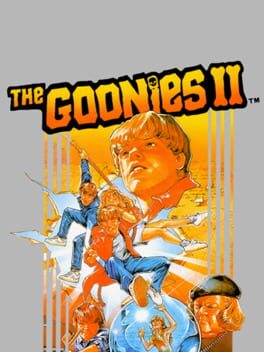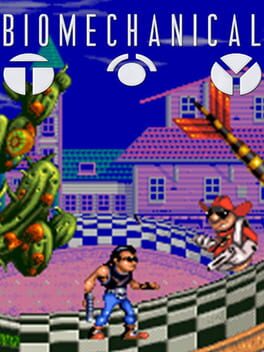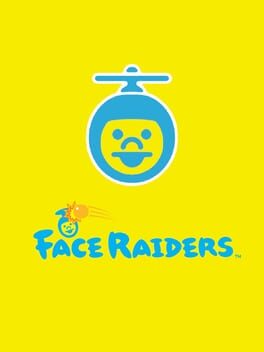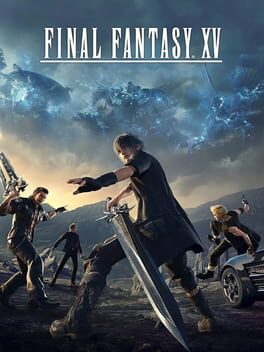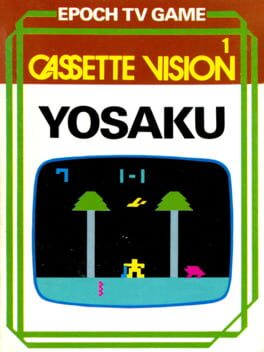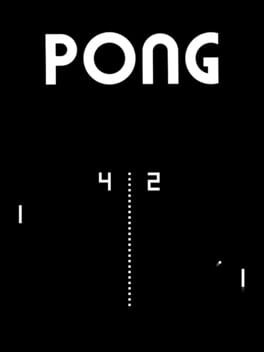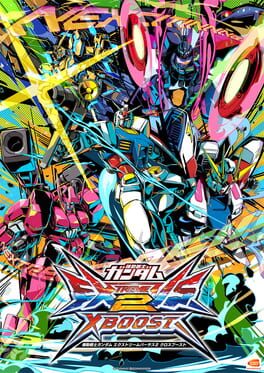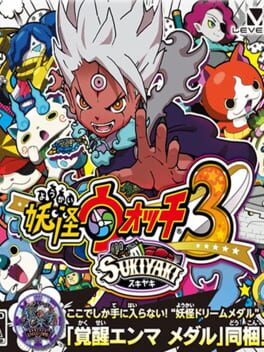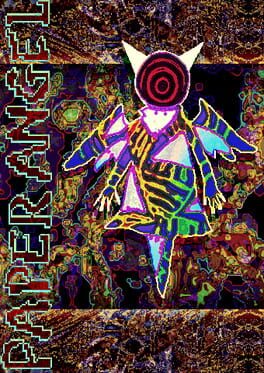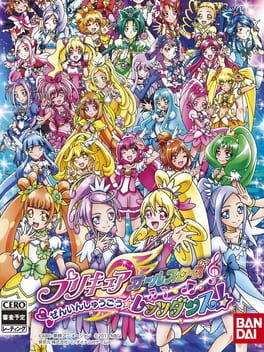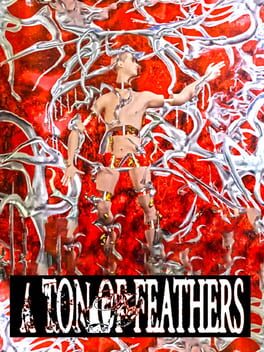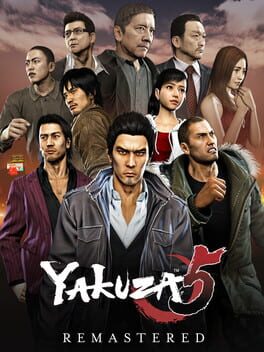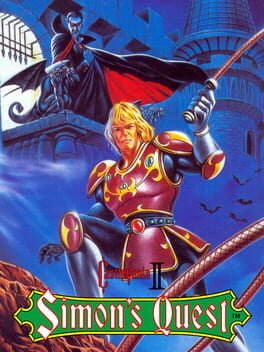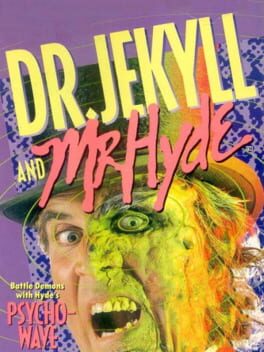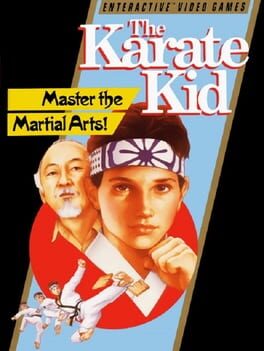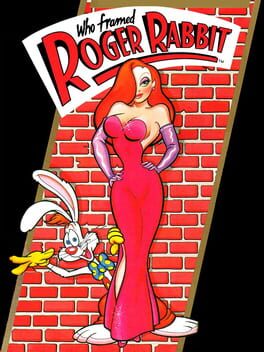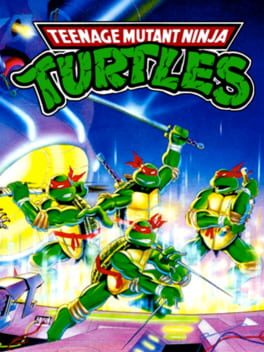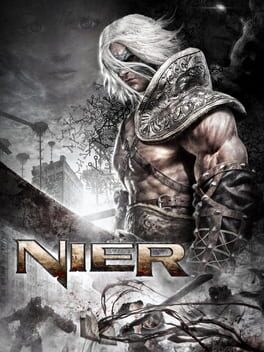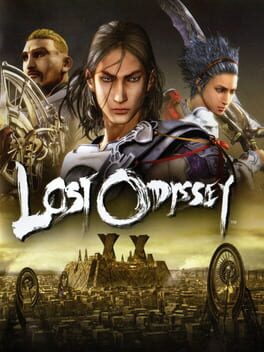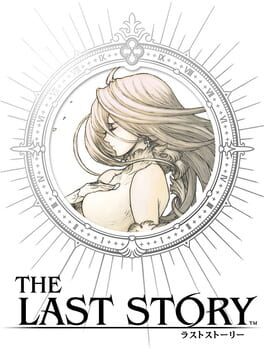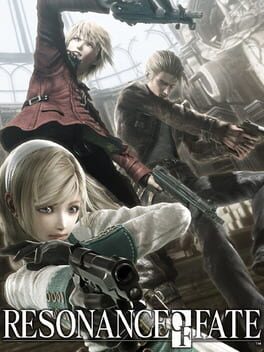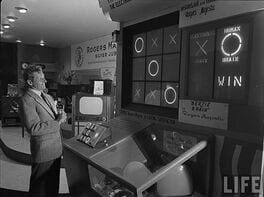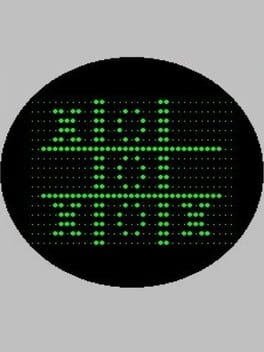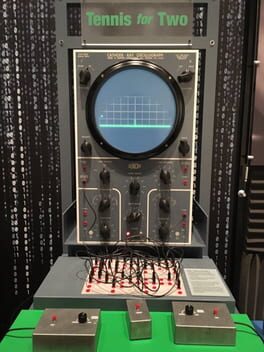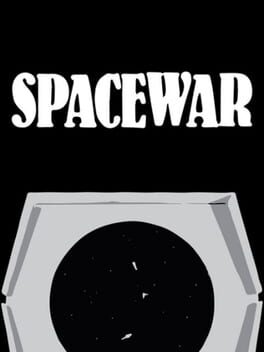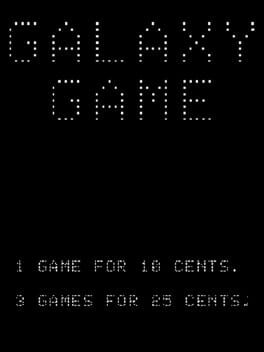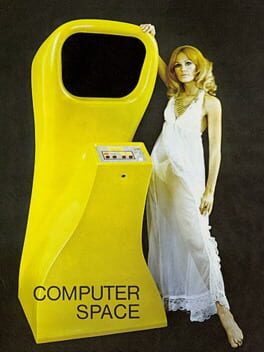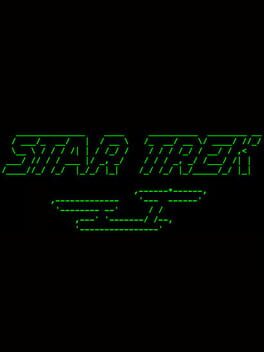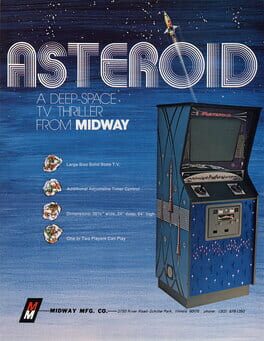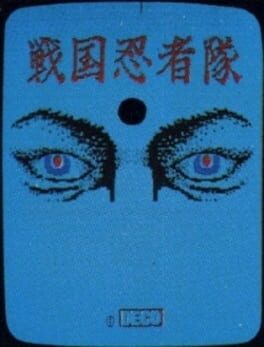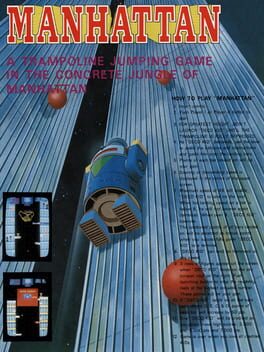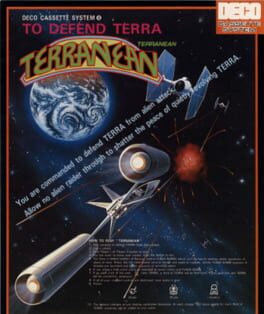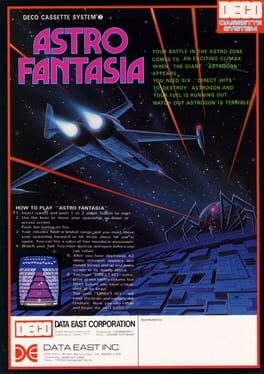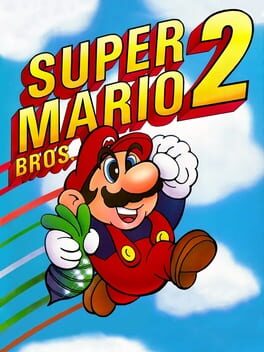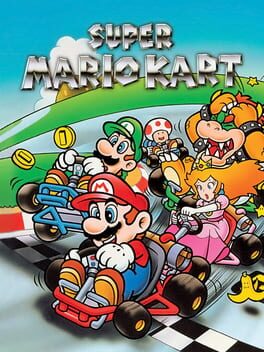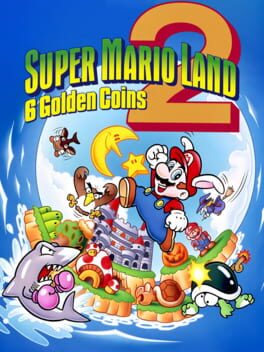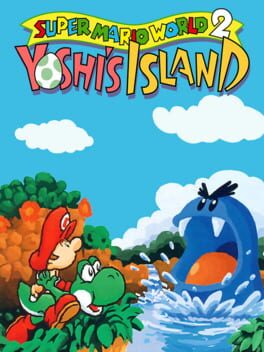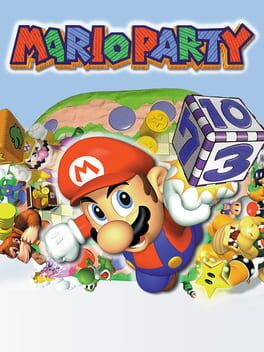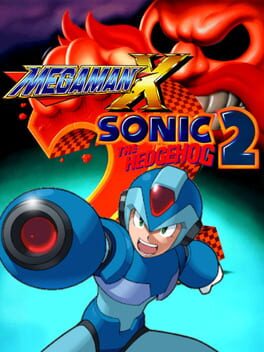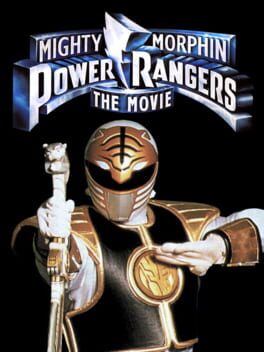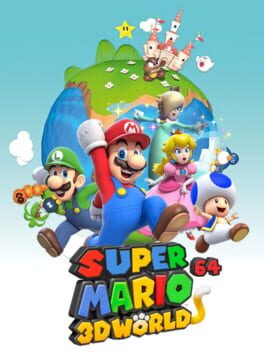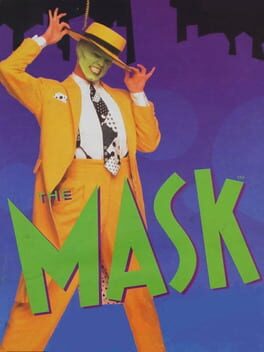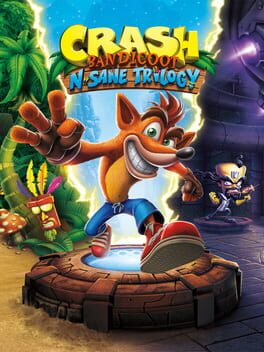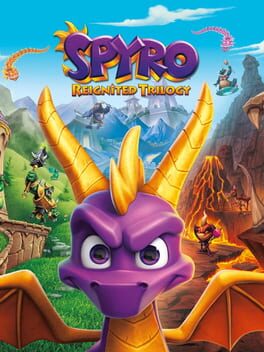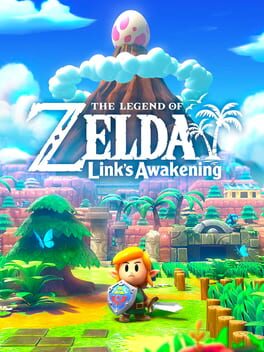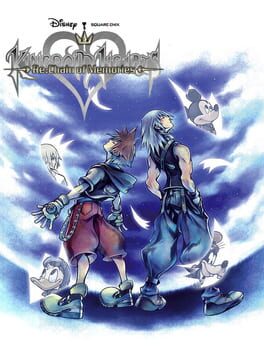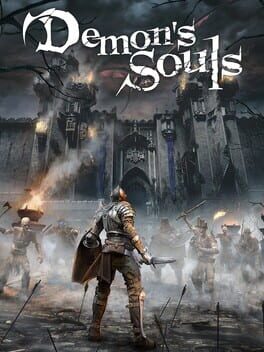ToastmanJack
BACKER
166 reviews liked by ToastmanJack
The Goonies II
1987
Final Fantasy IX
2000
Biomechanical Toy
1995
I am contractually obligated to inform you that if you take a look at the dumped prototype's name, this game was originally entitled Bioplaything Cop
Gaelco is perhaps one of the most underrated arcade game manufacturers because they'd make these weird games that feel like they dropped out of a parallel reality, and they don't even feel like arcade games, they feel like arcade-exclusive console games, or perhaps Amiga Eurojank
This would've been pretty successful as a 1995 PS1 longbox release standing along the likes of Rayman or Gex or Johnny Bazookatone, it's better than a lot of the second-stringers like that last one, but that's not how Gaelco rolls, if their games released on console then they wouldn't have that "hazy, half-remembered in a dream, easy to forget until some encyclopedic dork like me reminds you that they existed" quality
Four stars out of five, fun-run-and-gun, weird, wild and memorable art direction that's just fun to look at in a Rayman 1 or Yoshi's Island sort of way, shmup-like enemy placement that demands you force your way through hitstun invincibility frames like a quarterback, protagonist has that iconic era-appropriate Sketch Turner from Comix Zone greasy ponytail, you think this is SLICKED back??? This is PUSHED back.
Play Smashing Drive or I'll smash your nuts
Gaelco is perhaps one of the most underrated arcade game manufacturers because they'd make these weird games that feel like they dropped out of a parallel reality, and they don't even feel like arcade games, they feel like arcade-exclusive console games, or perhaps Amiga Eurojank
This would've been pretty successful as a 1995 PS1 longbox release standing along the likes of Rayman or Gex or Johnny Bazookatone, it's better than a lot of the second-stringers like that last one, but that's not how Gaelco rolls, if their games released on console then they wouldn't have that "hazy, half-remembered in a dream, easy to forget until some encyclopedic dork like me reminds you that they existed" quality
Four stars out of five, fun-run-and-gun, weird, wild and memorable art direction that's just fun to look at in a Rayman 1 or Yoshi's Island sort of way, shmup-like enemy placement that demands you force your way through hitstun invincibility frames like a quarterback, protagonist has that iconic era-appropriate Sketch Turner from Comix Zone greasy ponytail, you think this is SLICKED back??? This is PUSHED back.
Play Smashing Drive or I'll smash your nuts
Face Raiders
2011
Dragon's Dogma II
2024
Dragon's Dogma II is one of those games that I yearned for, I wished for it, and now that it is here, it is exactly what I wished for. Dragon's Dogma concerns you with the mundane as much as the extravagant, concerns about how much of your pack is taken up by herbs and equipment, your character's height and weight. it all matters as much as the fact that a dragon stole your heart and now you are the rightful sovereign of the country and must slay said dragon in an epic quest. it is the contrast between relaxing in an oxcart and then moments later it is attacked by a monster, wild and strange, that makes this game what it is
Final Fantasy XV
2016
JFK Reloaded
2004
There is an opportunity here for a detailed forensic simulation. But, for better or for worse, this is a video game titled jfk reloaded where you can install the grassy knoll mod
in the 10th grade i made a history video about the jfk assassination. it was very funny, and definitely tasteless. in that video, i included a very real clip of Walter Cronkite delivering news that the president had been declared dead. I showed my grandmother this video. She cried when she heard the clip. She had been a young mother with a newborn baby in 1963. I could tell it was traumatizing for her.
at that moment i regretted the final scene where rfk (played by my mid pubescent friend) says "I'm going to run for president" followed by a hard cut to black and a gunshot sound effect.
There's a funny, dynamic, branching, zig zaggy, squiggly, loop da loop line of what we are comfortable making light of. Like a lot of funny things, I can't define it.
in the 10th grade i made a history video about the jfk assassination. it was very funny, and definitely tasteless. in that video, i included a very real clip of Walter Cronkite delivering news that the president had been declared dead. I showed my grandmother this video. She cried when she heard the clip. She had been a young mother with a newborn baby in 1963. I could tell it was traumatizing for her.
at that moment i regretted the final scene where rfk (played by my mid pubescent friend) says "I'm going to run for president" followed by a hard cut to black and a gunshot sound effect.
There's a funny, dynamic, branching, zig zaggy, squiggly, loop da loop line of what we are comfortable making light of. Like a lot of funny things, I can't define it.
Helldivers 2
2024
3D shooters are a genre long and particularly afflicted with 'just so' game design; Half-Life popularized a reload mechanic where you tap a button and wait to have your gun refilled from a pool, and this became a defacto standard for no particular reason over not having reloading, or reloading that actually has gun magazine management, or dozens of other one off systems meant to represent a games ethos. Halo introduced a two-weapon system that, along side a nuanced weapon selection forced you to always accept a trade off, games without nuanced weapon selections copied it wholesale, usually resulting in defacto one weapon system because you really need to carry the M16 at all times to get anything done. Halo Infinite in turn has a sprint button with so little effect that you need a stopwatch to tell if it makes you faster- because Halo doesn't benefit from a sprint mechanic but Shooters Have Sprint. Helldivers is perhaps the only studio published 3D shooter in half a decade if not more where there is no 'just so' game design, from meat and potato mechanics like your gun's recoil being semi-deterministic to help you avoid the regular concern of friendly fire, and your gun being loaded from a small pool of disposable magazines, to fun details like running out of spawns but completing the mission objective still constituting a victory.
Kikori no Yosaku
1981
ヘイヘイホー ヘイヘイホー
「hei hei hou, hei hei hou」
You're probably never going to play Yosaku. Nobody will. It appears only in scant screenshots, an arcade flyer, mention in SNK 40th Anniversary Collection, as an easter egg in The King of Fighters: Battle de Paradise, and demonstrated in a single YouTube video. Releasing shortly before Safari Rally and Ozma Wars, Yosaku remains undumped (if not entirely lost) alongside SNK's earliest 'Micon Kit' Breakout clones. In spite of its obscurity, Yosaku is a foundational game not just for SNK, but for the early Japanese games market as a whole.
ヘイヘイホー ヘイヘイホー
「hei hei hou, hei hei hou」
The premise of Yosaku is pretty simple. The player is a lumberjack, toiling away in the forest while branches fall, birds defecate, boars charge, and snakes slither. Avoid danger, chop the trees, get a high score. It is by no means groundbreaking but for a 1979 release it seems to be decently fun. What is fascinating about Yosaku stems from what inspired it: an Enka song popularised by Saburou Kitajima in 1978.
トントントン トントントン
「tontonton, tontonton」
One of Sabu-chan's most famous works, Yosaku similarly tells the basic tale of the titular Yosaku chipping away at a tree while his wife performs domestic duties. Written by religious scholar and critic Kiminori Nanasawa, Yosaku was a submission to the long-running NHK musical variety show Anata no Melody. The conceit of the program was that amateur songwriters would submit their work to be performed by professional musicians. Yosaku's sparse lyrics are abound with onomotapoeia, and it's just a great track overall. In fact, the game Yosaku features part of the melody of the song Yosaku as sung by Sabu-chan, and it's officially licensed from the Japanese Society for Rights of Authors, Composers and Publishers, one of the first video games to bear their legal blessing.
トントントン トントントン
「tontonton, tontonton」
Lest we forget, this was the era of the arcade clone. Perhaps in a cruel twist of irony then for a company founded on Breakout clones, Yosaku is known less for its arcade release, and more for the unlicensed, unsanctioned copycat which released at the launch of the Epoch Cassette Vision. Kikori no Yosaku sees the detailed SNK original reduced to its barest geometries and most base elements. The much chunkier graphics reduce the playfield to just two trees instead of Yosaku's three. Unable to litter the space with smaller but more plentiful hazards, Kikori no Yosaku's dangers are the unhewn log to Yosaku's two-by-four. Rather than allow Yosaku to hide behind trees, Epoch's version leaps over boars. And even without the legal go ahead, Kikori no Yosaku has a crude rendition of those same bars from Sabu-chan's hit song.
ホーホー ホーホー
「houhou, houhou」
The Epoch Cassette Vision held 70% of the games console market in Japan by 1982. 'Video Games Console Library' makes the unsubstantiated claim that Kikori no Yosaku was the game that made the Cassette Vision as successful as it was. It's impossible to concretely corroborate this, but considering it was a launch title (and labelled as #1), it would certainly have drawn some customers in. Furthermore, Cassette Vision game releases were glacial, being made in-house by only three developers with a new title hitting shelves every quarter. An interview with Epoch designer and supervisor Masayuki Horie similarly asserts that Kikori no Yosaku is the first game people talk about when the Cassette Vision is discussed. Horie mentions that industry shows saw developers trying to discern which games would be popular, and thus fit for cloning, so Kikori no Yosaku's significance may well be true.
ヘイヘイホー ヘイヘイホー
「hei hei hou, hei hei hou」
With such a storied past, one might want to play Kikori no Yosaku for themselves. Well, you're probably never going to play the Cassette Vision release of Kikori no Yosaku, and not for lack of trying. A key quirk of the Cassette Vision is that the console itself is effectively just an AV passthrough. It lacks a processor. Unlike with other cartridge-based systems, Cassette Vision games house the software and hardware which allowed vastly faster operation. This means emulation is, while not impossible, entirely too cumbersome for anyone to have meaningfully tackled it thus far - ROM dumps for all eleven releases do now exist at least. Barring the purchase of antiquated hardware, Kikori no Yosaku is just as playable as Yosaku.
ヘイヘイホー ヘイヘイホー
「hei hei hou, hei hei hou」
Or so I thought. As it turns out, an unofficial port of Kikori no Yosaku came to the Sharp X68000 in 1991 thanks to IJI Team. This clone of a clone is a near-exact recreation of the Cassette Vision original, down to the graphical quirks of diagonal sprites. The only substantial difference I was able to spot has to do with the colours themselves, which are more pastel on Cassette Vision than they are on X68000 - this may be due to the oddities of RF connections.
トントントン トントントン
「tontonton, tontonton」
All told, Kikori no Yosaku is a pretty fun romp, albeit a pretty easy one when not playing on the higher difficulties. The circumstances of its creation as a clone of an oddly seminal title, which itself is only accessible thanks to another clone, make it noteworthy. Furthermore, the X68000 version is the only such recreation of an Epoch Cassette Vision game. Even the absurd Pac-Man clone PakPak Monster remains bound to the original hardware.
トントントン トントントン
「tontonton, tontonton」
Yosaku is a hit enka song written by an obscure amateur.
Yosaku is one of the only lost SNK titles.
Yosaku is one of the first games to have music licensed by JASRAC.
Yosaku is perhaps responsible for the success of the Epoch Cassette Vision.
Yosaku is emblematic of the wild west of early video game (non)copyright.
Yosaku is a chunky, shameless copy.
Yosaku is a near-perfect recreation.
Yosaku is simple but elegant.
ホーホー ホーホー
「houhou, houhou」
「hei hei hou, hei hei hou」
You're probably never going to play Yosaku. Nobody will. It appears only in scant screenshots, an arcade flyer, mention in SNK 40th Anniversary Collection, as an easter egg in The King of Fighters: Battle de Paradise, and demonstrated in a single YouTube video. Releasing shortly before Safari Rally and Ozma Wars, Yosaku remains undumped (if not entirely lost) alongside SNK's earliest 'Micon Kit' Breakout clones. In spite of its obscurity, Yosaku is a foundational game not just for SNK, but for the early Japanese games market as a whole.
ヘイヘイホー ヘイヘイホー
「hei hei hou, hei hei hou」
The premise of Yosaku is pretty simple. The player is a lumberjack, toiling away in the forest while branches fall, birds defecate, boars charge, and snakes slither. Avoid danger, chop the trees, get a high score. It is by no means groundbreaking but for a 1979 release it seems to be decently fun. What is fascinating about Yosaku stems from what inspired it: an Enka song popularised by Saburou Kitajima in 1978.
トントントン トントントン
「tontonton, tontonton」
One of Sabu-chan's most famous works, Yosaku similarly tells the basic tale of the titular Yosaku chipping away at a tree while his wife performs domestic duties. Written by religious scholar and critic Kiminori Nanasawa, Yosaku was a submission to the long-running NHK musical variety show Anata no Melody. The conceit of the program was that amateur songwriters would submit their work to be performed by professional musicians. Yosaku's sparse lyrics are abound with onomotapoeia, and it's just a great track overall. In fact, the game Yosaku features part of the melody of the song Yosaku as sung by Sabu-chan, and it's officially licensed from the Japanese Society for Rights of Authors, Composers and Publishers, one of the first video games to bear their legal blessing.
トントントン トントントン
「tontonton, tontonton」
Lest we forget, this was the era of the arcade clone. Perhaps in a cruel twist of irony then for a company founded on Breakout clones, Yosaku is known less for its arcade release, and more for the unlicensed, unsanctioned copycat which released at the launch of the Epoch Cassette Vision. Kikori no Yosaku sees the detailed SNK original reduced to its barest geometries and most base elements. The much chunkier graphics reduce the playfield to just two trees instead of Yosaku's three. Unable to litter the space with smaller but more plentiful hazards, Kikori no Yosaku's dangers are the unhewn log to Yosaku's two-by-four. Rather than allow Yosaku to hide behind trees, Epoch's version leaps over boars. And even without the legal go ahead, Kikori no Yosaku has a crude rendition of those same bars from Sabu-chan's hit song.
ホーホー ホーホー
「houhou, houhou」
The Epoch Cassette Vision held 70% of the games console market in Japan by 1982. 'Video Games Console Library' makes the unsubstantiated claim that Kikori no Yosaku was the game that made the Cassette Vision as successful as it was. It's impossible to concretely corroborate this, but considering it was a launch title (and labelled as #1), it would certainly have drawn some customers in. Furthermore, Cassette Vision game releases were glacial, being made in-house by only three developers with a new title hitting shelves every quarter. An interview with Epoch designer and supervisor Masayuki Horie similarly asserts that Kikori no Yosaku is the first game people talk about when the Cassette Vision is discussed. Horie mentions that industry shows saw developers trying to discern which games would be popular, and thus fit for cloning, so Kikori no Yosaku's significance may well be true.
ヘイヘイホー ヘイヘイホー
「hei hei hou, hei hei hou」
With such a storied past, one might want to play Kikori no Yosaku for themselves. Well, you're probably never going to play the Cassette Vision release of Kikori no Yosaku, and not for lack of trying. A key quirk of the Cassette Vision is that the console itself is effectively just an AV passthrough. It lacks a processor. Unlike with other cartridge-based systems, Cassette Vision games house the software and hardware which allowed vastly faster operation. This means emulation is, while not impossible, entirely too cumbersome for anyone to have meaningfully tackled it thus far - ROM dumps for all eleven releases do now exist at least. Barring the purchase of antiquated hardware, Kikori no Yosaku is just as playable as Yosaku.
ヘイヘイホー ヘイヘイホー
「hei hei hou, hei hei hou」
Or so I thought. As it turns out, an unofficial port of Kikori no Yosaku came to the Sharp X68000 in 1991 thanks to IJI Team. This clone of a clone is a near-exact recreation of the Cassette Vision original, down to the graphical quirks of diagonal sprites. The only substantial difference I was able to spot has to do with the colours themselves, which are more pastel on Cassette Vision than they are on X68000 - this may be due to the oddities of RF connections.
トントントン トントントン
「tontonton, tontonton」
All told, Kikori no Yosaku is a pretty fun romp, albeit a pretty easy one when not playing on the higher difficulties. The circumstances of its creation as a clone of an oddly seminal title, which itself is only accessible thanks to another clone, make it noteworthy. Furthermore, the X68000 version is the only such recreation of an Epoch Cassette Vision game. Even the absurd Pac-Man clone PakPak Monster remains bound to the original hardware.
トントントン トントントン
「tontonton, tontonton」
Yosaku is a hit enka song written by an obscure amateur.
Yosaku is one of the only lost SNK titles.
Yosaku is one of the first games to have music licensed by JASRAC.
Yosaku is perhaps responsible for the success of the Epoch Cassette Vision.
Yosaku is emblematic of the wild west of early video game (non)copyright.
Yosaku is a chunky, shameless copy.
Yosaku is a near-perfect recreation.
Yosaku is simple but elegant.
ホーホー ホーホー
「houhou, houhou」
Pong
1972
I noticed a weird bug where the ball went through the paddles sometimes, the devs really should fix that on the next patch...
There's something so cosmically hilarious in the fact the CEO of Atari saw what would become one of the most influential piece of tech to ever be made as a ''fucking piece of trash'', and the main developer, Allan Alcorn, thought of it just as a side project where he did some things haphazardly to make his bosses weird-ass demands happy. It grounds the legend around Pong while being even more inspiring un a way.
It wasn't the first arcade machine, it wasn't the most creative thing you could do with the tech even back then, but damn if those beeps and boops aren't charming as hell and if playing alone isn't some of the most oddly interesting fun you could have with a game like this, even if sometimes hitting the ball when it respawns is even harder than when another player hits it back...
I could go on about Pong for 4000 words... except actually no, I couldn't; it's Pong, and beyond its unbelievably important historical value and rich history, it's still a game, and even more than half a century later, it still holds up as one.
A legacy that other games from back then and soon after do share, but one still worth praising nonetheless...
There's something so cosmically hilarious in the fact the CEO of Atari saw what would become one of the most influential piece of tech to ever be made as a ''fucking piece of trash'', and the main developer, Allan Alcorn, thought of it just as a side project where he did some things haphazardly to make his bosses weird-ass demands happy. It grounds the legend around Pong while being even more inspiring un a way.
It wasn't the first arcade machine, it wasn't the most creative thing you could do with the tech even back then, but damn if those beeps and boops aren't charming as hell and if playing alone isn't some of the most oddly interesting fun you could have with a game like this, even if sometimes hitting the ball when it respawns is even harder than when another player hits it back...
I could go on about Pong for 4000 words... except actually no, I couldn't; it's Pong, and beyond its unbelievably important historical value and rich history, it's still a game, and even more than half a century later, it still holds up as one.
A legacy that other games from back then and soon after do share, but one still worth praising nonetheless...
34 lists liked by ToastmanJack
by tendog |
186 Games
by Rowl_ |
10 Games
by Philemon |
715 Games
by Cvit |
20 Games
by SnobbishPuppet |
125 Games
by PasokonDeacon |
82 Games
by PasokonDeacon |
24 Games
by letshugbro |
24 Games
by dleo |
23 Games
by _YALP |
37 Games
